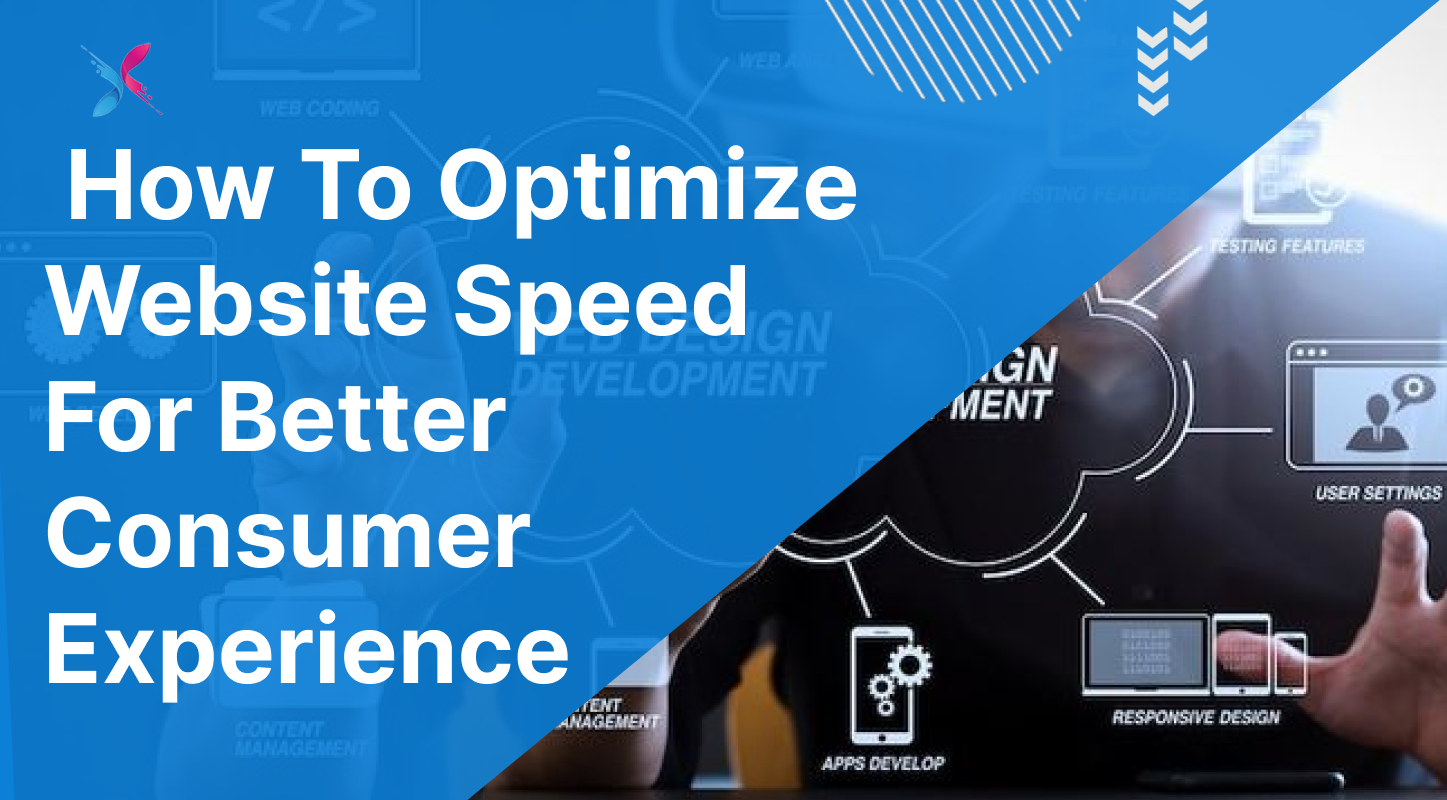-
Services
- Custom Web Design & Development Get your ideas developed into your own style with a customized website.
- WordPress Development A unique optimized WordPress website customized to your requirements.
- E-commerce Web Development Get your business online with a fully customized e-commerce website for your brand.
- Web Applications & Portals Get your own unique web applications and portals for your brand.
- SEO Improve the quality of the reach on your web pages with detailed search engine optimization of your brand.
- Domains and Hosting Mobile Application Development Logo Design Branding Video Animation Content Writing Website Management Digital Marketing
- Packages
- Client Reviews
- Portfolio
- Blog
- Contact Us
- Select your business
How to Optimize Website Speed for Better Consumer Experience

How to Optimize Website Speed for Better Consumer Experience
Website speed has a major impact on user experience, search engine rankings, and even your revenue. A slow website leads to frustrated users, higher bounce rates, and reduced conversions. To give your consumers the best online experience, optimizing your website speed is essential. In this blog, we'll explore practical strategies like improving page load time, using image compression techniques, browser caching, minification of CSS and JavaScript, and integrating a Content Delivery Network (CDN) to ensure your website runs smoothly.Why Website Speed Optimization Matters
Website speed is directly linked to how users perceive your website. The faster it loads, the better the user experience. A lagging website can push potential customers away, leading them to competitors with faster websites. Moreover, search engines like Google take page load time into account when ranking websites, making speed optimization vital for SEO as well. By focusing on website speed optimization, businesses not only offer a seamless user experience but also see a significant boost in search engine visibility and overall conversions.Reduce Page Load Time
The duration required for a web page to completely load is known as page load time. Minimizing this duration can significantly enhance user satisfaction and engagement. The majority of users anticipate that a website will load in less than 3 seconds; if it fails to do so, they are likely to exit before encountering your content. Improving page load time entails decreasing the number of HTTP requests, optimizing server response times, and ensuring rapid delivery of the first byte. Measuring your current speed with tools like Metrix or Google's Page Speed Insights is a smart idea. With the help of these tools, you may assess the functionality of your website and get recommendations for speeding up page loads.Image Compression for Faster Load
Images make websites visually appealing but can also slow them down if not properly optimized. Using image compression techniques is key to balancing quality and speed. Compressing images reduces their file size without affecting their visual quality, making them quicker to load. Tools like TinyPNG and JPEG-Optimizer allow you to compress images before uploading them to your website. Furthermore, you can speed up page loads considerably by choosing more contemporary picture formats, such Web, which provide superior compression than more conventional formats, like JPEG or PNG.Enable Browser Caching
Browser caching stores copies of website resources on the user’s device so that subsequent visits to the site don’t require reloading every element from the server. When visitors return to your website, the browser caching technique allows them to load pages faster by using previously stored files. Configuring caching headers to specify how long browsers should store different files can improve your website’s overall performance. This helps reduce page load time for returning visitors, providing them with a smoother experience.Minify CSS and JavaScript
Large and unoptimized code files can be one of the primary reasons for slow websites. By focusing on minification of CSS and JavaScript, you can remove unnecessary characters, spaces, and comments from your code without affecting functionality. This minimizes file size and improves website performance. Tools like CSSNano and UglifyJS help with the minification of CSS and JavaScript files. Minified code loads faster, improving user experience and boosting your SEO efforts.Use a CDN for Global Reach
For websites with international audiences, using a Content Delivery Network (CDN) is crucial. A CDN distributes your website's static content, like images, stylesheets, and JavaScript files, across a network of servers located around the globe. When users access your site, the content is delivered from the server nearest to them, reducing page load time and improving overall speed. Popular CDNs like Cloudflare, Akamai, and Amazon CloudFront can help ensure that your website’s content is delivered swiftly, no matter where your users are located. This improves the speed, reliability, and scalability of your website.Conclusion
Optimizing your website speed is essential for delivering a better user experience, improving your SEO ranking, and keeping your customers engaged. By reducing page load time, implementing image compression techniques, enabling browser caching, focusing on the minification of CSS and JavaScript, and using a Content Delivery Network (CDN), you can significantly enhance the performance of your website. These strategies not only help you retain visitors but also ensure that your website remains competitive in the fast-paced digital world. Ready to supercharge your website's performance? Contact Webinisation today to get expert help in optimizing your website speed for a better consumer experience!Related Blogs
Google Updates ‘Test My Site’ to Show Impact of Mobile Site Speed on Performance
In today's digital landscape, having a fast and responsive website is crucial for your online success. With the increasing number of users accessing websites through mobile devices, mobile site speed has become a critical factor in determining the performance and ranking of your website.
What are the Highlights of the Newest Version of Joomla, 3.9?
With the ever-evolving landscape of web development services, it is essential for businesses and individuals to stay up-to-date with the latest advancements in content management systems (CMS).
How Can I Start To Learn Web Development?
Starting your journey in web development can be an exciting and fulfilling experience. Whether you want to pursue it as a career or simply enhance your skills, understanding the fundamentals is essential. Web development encompasses various technologies and languages that are used to create and maintain websites and web applications.



